The Most Romantic Moments in Gaming
This feature highlights some of our favorite romantic moments in gaming's recent years.
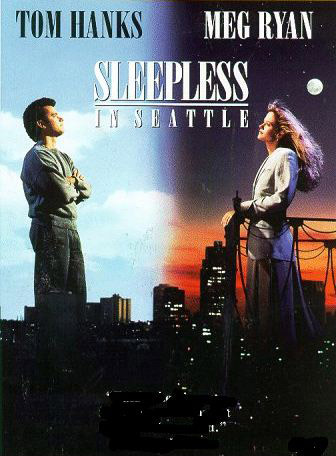
Design by Marty Smith
When you think of a satisfying love story, what form of media jumps to mind? For many of us, films like Pretty Woman or Breakfast at Tiffany's are the first examples that pop into our heads. The more literary-minded among us may instead think of classic novels or plays, like Ethan Frome or Romeo and Juliet. The musically inclined may start humming any one of thousands of love songs that have been written and performed over the years. But even for those of us who count video games as a primary form of entertainment, a game is probably not the first or second example that comes to mind when the topic of love stories or romance is brought up.
In some sense it's understandable that we have a hard time coming up with good examples of romance in games, because love is not a topic that has been covered to much of a degree in most of them. While many classic games have included a love interest, usually the treatment of the relationship is token, consisting of a conquering warrior rescuing a hapless damsel in distress. Take the original Dragon Warrior on the NES, for example. At the end of the game, the princess Gwaelin asks to journey with you, at which point you're presented with a choice of "Yes" or "No." It's not really a choice though. You can't advance unless you say "Yes" and then bring her with you, presumably to live happily ever after. In effect, a tired and clichéd ending is forced upon you. While there are examples to the contrary (which you should feel free to point out in our forums), Dragon Warrior exemplifies how storytelling and character development were not necessarily primary concerns for many game developers of the past.
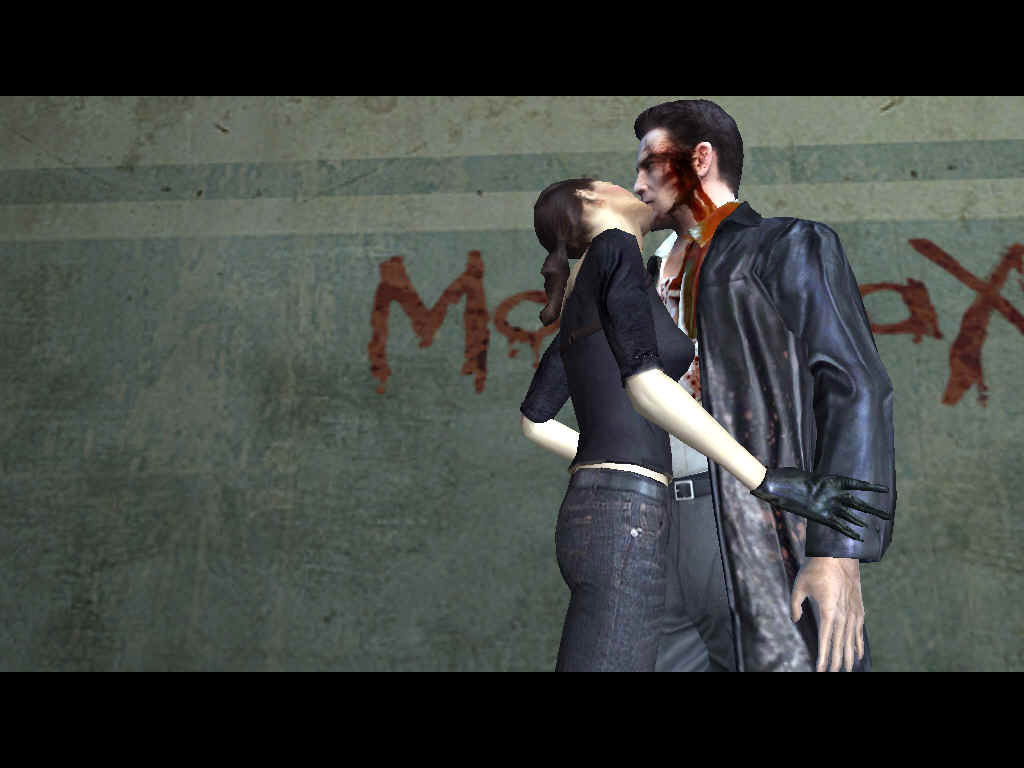
Over the years, and as game technology has advanced and as game development budgets and team sizes have grown, developers have benefited from having gained more tools to use for both emphasizing plot development and creating more-memorable, dynamic characters. Development houses can afford to keep professional writers on staff who are generally more capable of writing stories that include subtle character development and meaningful dialogue. Also, now that many games include extensive voice work, the subtleties of intonation and the expressiveness of the human voice can be leveraged, as it is in music. Graphical technology, such as the facial animation that can be realistically created in Half-Life 2's Source engine, can now let digital characters be just as expressive and soundlessly emotive as any human actors.
The six examples we've highlighted in this feature represent some of our favorite romantic moments in gaming's recent years, and many of them do leverage today's technology or larger resources to make them so memorable. And while some may involve more-classic ideas of love, many of them turn gender roles upside down or otherwise offer nontraditional views of romance.
Please be warned that this feature includes plot details many would consider spoilers.
The Ending of Final Fantasy VIII
Final Fantasy VIII is my favorite title of the Playstation era, bar none. There were plenty of excellent titles released for the system, of course, but FFVIII sticks in my brain like none other. Oh, sure, FFVII was a transcendent experience for a number of reasons, but I've always felt a bit more connected to the characters of VIII. Part of this was because the designers explicitly made all the characters recognizably human, both in the cutscenes and in the actual game. Gone were the blocky Lego characters from VII, and there wasn't a Red XIII or Khimari in sight. And there was certainly no freakish main character with a tail.
The second aspect of my geeky, fanlike adoration of the game revolves around its main romance. This is where the love-it-or-hate-it aspect of it usually comes into play. Either you thought Squall was standoffish and cold because he was a jerk--so you therefore disliked him--or you thought Squall was standoffish because of some repressed Wagnerian broodiness, in which case he was kind of interesting. Regardless, the fact is that Squall and Rinoa's relationship throughout the game changes dramatically, mostly because Squall realizes that a life lived alone-- something he was a strong advocate of at the beginning of the game--just isn't worth living.
That's the main reason I found the ending of the game so brilliantly realized. After defeating the final boss, a time-warping sorceress, Squall and Rinoa find themselves trapped in separate parts of a vast, empty plain, seemingly outside of time itself. A series of visions appear to Squall in which he sees his past both without Rinoa and without anything but Rinoa. In the end, he's defeated by his own indecisiveness and then slumps to the ground.
Then the music swells, Rinoa finds Squall, and one of the most satisfying endings in role-playing game history kicks off its climax. It's an ending that's very easy to be cynical about (as well as laugh at), and perhaps there's more than a bit of ridiculousness to it, because it's certainly not subtle. However, one of the great things about RPGs is that if you identify with the characters, you're going to have 40 or 50 hours' worth of time to spend with them. And the designers of FFVIII took full advantage of this. Squall changed perceptibly, albeit very gradually, throughout the adventure. So by its end, he's forced to come full circle and apostatize what he previously desired. This makes the events portrayed in the final cinematic all the more impactful.
And although FFX showed that a sad ending can work, and work beautifully (admit it, you cried a little!), there's still nothing quite like a good old-fashioned first kiss at the tail end of the credits to make us feel completely satisfied with an epic RPG...especially if a bit of a sentimentalist lurks beneath each of our ossified, cynical hearts, as I willingly admit is the case for me.
CJ and Denise - Grand Theft Auto: San Andreas
You're a young man who's about to take a girl out on a first date...your first date with her. It's possibly your first date, period. Your green sweater and khaki pants are fresh from the wash, so you're looking sharp and are dressed like a million bucks. You roll up to her house in your new car, and you tap the horn to get her attention. She pushes open the screen door, and just from the sight of her fresh braids and her confident stride, you can tell this is going to be a good night. She slides across the bench seat in your drop-top, and now come the internal questions: How do I impress this girl? Does she like the bar scene? Would she rather have a nice table-for-two dinner? Or maybe just a nice, scenic drive around the city...
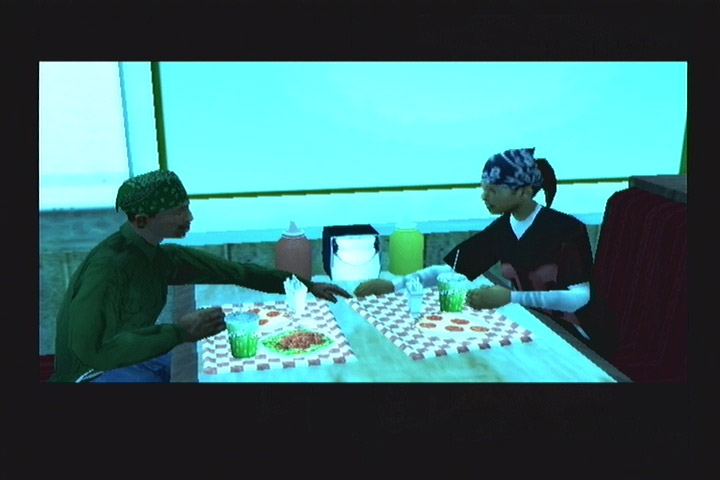
"Let's go dump on some bustas!" maybe isn't the response you expected from this little sweetheart, and it probably wouldn't be even remotely romantic under any other circumstances. But this is San Andreas. The reality is a little bit different here. You're not a man to argue, so you grab your heater from under your seat, roll into Ballaz turf, and let this girl represent the Grove Street Families to the fullest. Watching her empty clip after clip into the small crowds of purple shirts, you think this just might be "the real thing."
But alas, complications with the law end up driving you out of town, cutting short your relationship with this seemingly perfect gangsta's girlfriend. You'll romance plenty of other women all across the state of San Andreas--including mechanics, lawyers, nurses, and ex-cops--but none will be quite as special as your drive-by date Denise.
TEC and Peach's Dance - Paper Mario: The Thousand-Year Door
The torrid love affair between the X-Nauts' TEC-XX supercomputer and Mario's sweetheart, Princess Peach, is downright heartwarming...in a strange sort of way. TEC first lays his fiber-optic eye on Peach when she disrobes to take a shower, thereby displaying the pride of the mushroom kingdom. TEC's circuitry promptly overloads, supplanting his dreams of world domination with a need to know just what's causing that funny feeling in his PCI bus. To further confuse matters, Peach is TEC's prisoner, and he is her warden. So she is his puppet, and he is her puppet master. What's that you say? This is an E-rated game? Right-o!
A bizarre courtship ensues in which TEC provides Peach with Internet access, so long as she humors him by providing information about love, a concept absent from his otherwise all-encompassing data banks. TEC's requests grow more and more outlandish, finally fulminating with, "It puts the lotion on its skin or else it gets the hose again."
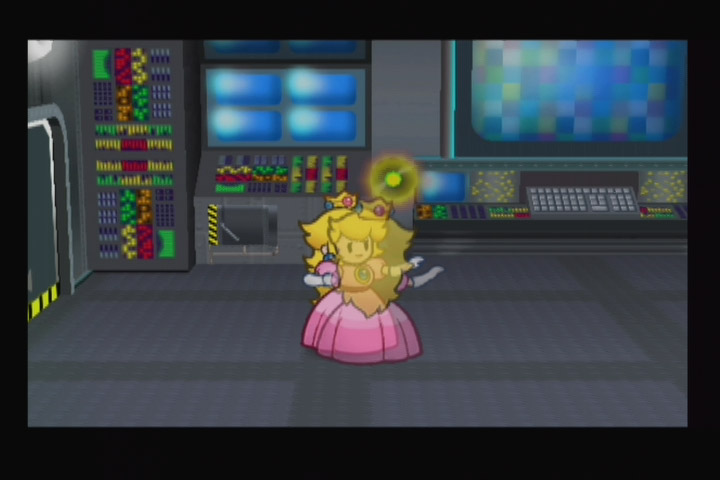
Actually, that's untrue. TEC does, however, ask Peach to dance with him, a tough feat for a computer mainframe. TEC corporeally represents himself as a carbon copy of Princess Peach, and the pair of, um, Peaches waltz like pros. This hardly seems like a healthy move in the relationship, but then again, Freud never composed a theory on the psychosexual development of megalomaniacal supercomputers. Besides, it's totally cute within the context of the game. Peach even seems to get into it a bit and starts two-stepping in earnest.
Guys, pop the question this Valentine's Day: "Baby, were I an evil electronic brain, would you still love me?"
ICO
ICO is not a game about navigating a mysterious castle and surmounting obstacles while on your way to defeat an evil spirit witch queen to then escape to greener pastures. Well, OK. It is about that. But it's also about the special bond between a sacrificial horned boy and his confused, wispy companion, who apparently couldn't find her way out of a paper bag if the need arose. The boy's care for Yorda is borne of the frustration that results from having to lead her around by the hand, as well as tell her what to do for the entire damn game. She's just so helpless. How can you not want to give her a hand? And if you haven't yet played this classic, giving her a hand is exactly what you'll do.
You can apply a lot of labels to ICO: sleeper, critics' darling, pretentious bore. (That last one is false.) The game has a touching, subtle beauty in its architecture, lighting, and animations. Yes, it's sublimely rendered in a unique visual style. But what really makes it worthy of inclusion here is the hand-holding. They made an entire game about hand-holding. Even better, it's good. Really good!
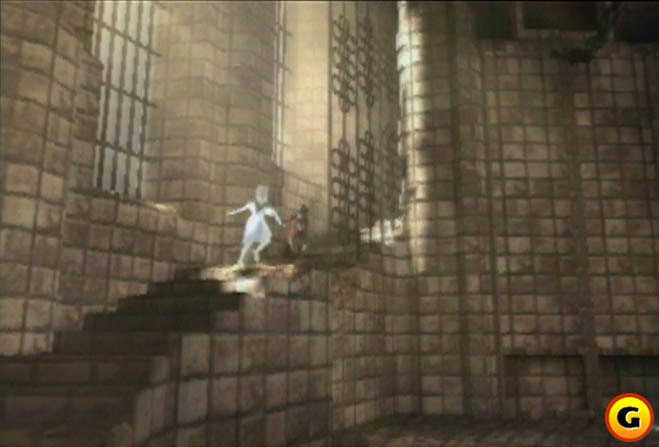
This isn't your typical action game. ICO was like a Prince of Persia in 3D before Prince of Persia: The Sands of Time made it cool to do Prince of Persia in 3D. But that puzzle-solving is only half the point; the other half is that you're completely responsible for the safety of this girl, whom you can't even speak to. You pull Yorda along by the hand in an adorably clumsy fashion; you pull her onto ledges; and you courageously fight off creepy shadow monsters, which, for some reason, want to deliver her to the evil queen. Keeping her safe is as important as keeping yourself safe, and throughout the game, you can't help but feel a little bit of the same affection for the pair that they must feel for each other.
The rest of the games on this list feature specific, brief moments that tug a little at the heartstrings. ICO's sappy moment, on the other hand, happens to last a good eight hours (that's the length of the whole game, if you're keeping score).
Mona Saves Max - Max Payne 2
Many people often forget that Max Payne 2 has the tagline: "A Film Noir Love Story." The cover shot, which shows the silhouettes of the titular cop and his lover in an embrace while clutching automatics, is truly the best one-picture summary of the game's story. While some have decried Max Payne 2's plot as ham-fisted and awkward, the fact remains that the driving force behind the ballet of gunplay in the game is the tension between Max and the femme fatale assassin, Mona Sax. Star-crossed lovers who find themselves on opposite sides of the law, Mona and Max constantly contend with conflicted inner feelings, while working to uncover the conspiracy set up against them.
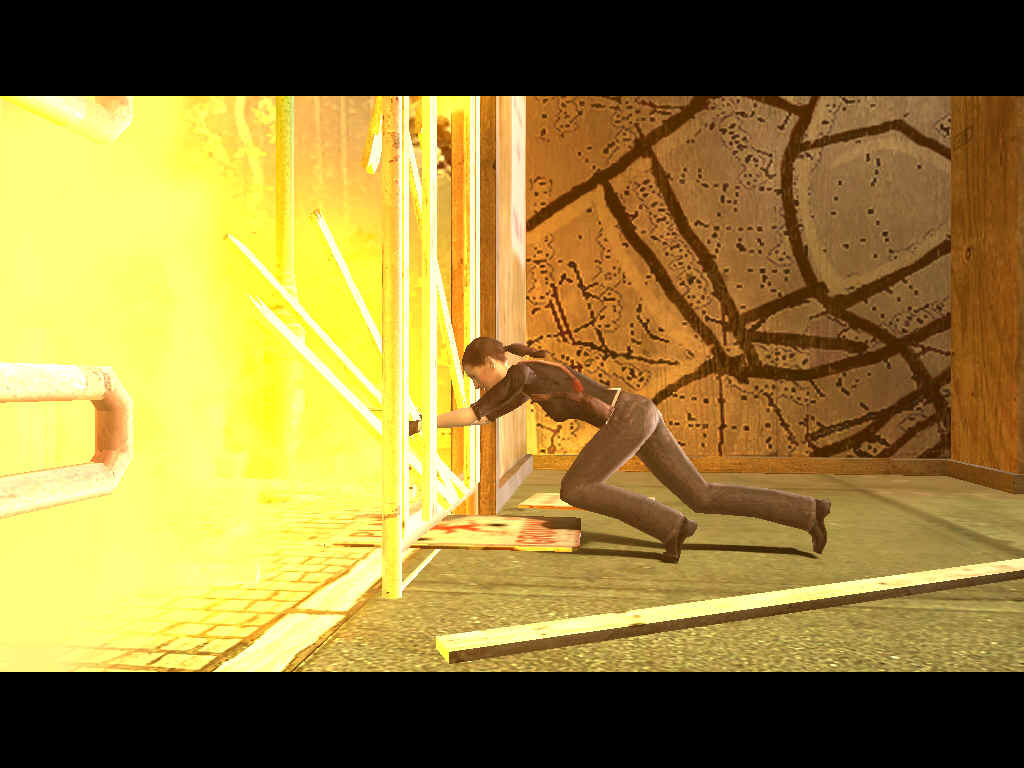
As the story unfolds, Max finds himself more and more dependent on a woman he's attracted to but is never quite sure he can trust. For much of the game, the duo battles together. More specifically, each covers the other as he or she shoots through construction sites and warehouses teeming with bad guys. Despite working as wingmen for each other for much of the time, Max continues to battle doubts in his head about Mona through the entire course of the game. She seems to care about Max, but whose side is she really on? The main villain, Vladimir Lem, also does his best to sow the seeds of distrust in Max by suggesting her involvement in the murder of Max's family in the original Max Payne.
But any doubts you may harbor about Mona's loyalties evaporate midway through the game's final act. While attempting to kill Vlad, she witnesses the villain set off an explosion in her hideout, where he's left Max for dead. Mona selflessly plunges headlong into the fiery building, where she fights through flames to pull Max's broken and bloodied body from the raging inferno. It isn't the cleanest act of love, but it certainly isn't any less meaningful, especially given how much Max outwardly distrusts her throughout the game.
The Ending of Prince of Persia: The Sands of Time
One of the sweetest and most enduring aspects of Ubisoft's masterpiece, Prince of Persia: The Sands of Time, is the relationship that develops between the prince and Farah. The two are royalty on opposite sides of a war, but they're forced to work together after the evil Vizier unleashes the Sands of Time, which ravage Farah's palace into a zombie-filled dungeon that features fiendish environmental puzzles. Though their relationship starts off chilly, with the two trading snippy jabs at each other, the prince and Farah eventually develop a mutual affection. At one point in the story, the two find themselves trapped in a dark hole with seemingly no way to escape. There, Farah relates a story about how she and her mother made up a secret word that would bring her comfort in times of hopelessness. Although initially dismissive of the story, the prince makes careful note of the secret word.

The prince eventually reaches a point where the only way to save himself and Farah is to rewind time all the way back to before the Sands of Time were ever unleashed. This gives him the opportunity to sneak into Farah's room to warn her of the Vizier's evil plans, and the impending doom, before the Sands of Time are ever unleashed. But because their long adventure together never happened in her mind, the prince finds that winning Farah's trust is difficult. His attempt to steal a kiss from her is rebuffed at the end, even after proving the Vizier's treachery and saving the day. Apparently, Sandra Bullock was right when she said in Speed, "Relationships based on extreme circumstances never work out."
Though he doesn't get the girl in the end, the prince gives Farah something to think about when she asks for his name as he leaves her bedroom. In a particularly inspired moment, the prince replies "Cacolukia," which is the secret word that Farah supposedly never shared with anyone. This made for an ending that was not only cute and hopelessly romantic, but also clever.
What's Your Take?
What did you think of our choices? Can you think of better examples from modern games? Or do you think that older games presented love and romance in better fashions? Sound off in our forums by telling everyone what you think are the most romantic moments in gaming.
Got a news tip or want to contact us directly? Email news@gamespot.com
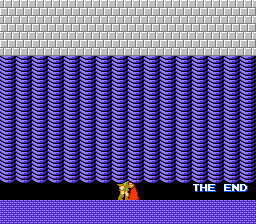

Join the conversation